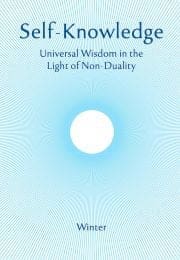Towards Inner Freedom
The mind creates bondage and the mind can also create freedom.
Amrita-Bindu Upanishad
When we hear of some kind action, selflessly performed, we sometimes say: ‘It has restored my faith in human nature.’ This contrasts with our response to selfish and cruel behaviour, which incurs censure and regret. The wider question of whether human nature is fundamentally noble or innately flawed is one that has engaged theologians and philosophers down the ages. A single great-hearted person, by their very presence, can undermine the generalisation that we are all corrupt; yet ongoing instances of inhumanity can lead us once more into pessimism.
The yoga of self-knowledge is concerned with ascertaining the true nature of the self. It goes deeper than making judgements based on the qualities that visit, and sometimes inhabit, our mind. The mind is viewed as a complex field of energies that can express itself variously. As a totality, it includes stark contra-dictions. Many a good heart shelters a dark secret; many criminals believe themselves to be well-intentioned.
There can be no inner freedom while we are identified with the mind, because of the fickleness, unpredictability and changeability of its condition. We have to go beyond the limitations of the mind. And yet, inner freedom will elude our grasp unless we work on the mind to prepare it for self-transcendence. For the good-hearted, the great blessing is to know we are already on the right lines, and have only to deepen and universalise our tendency to benevolence. For those who are not so well-disposed, the prescription is to abandon hostilities, to practise inner peace, to escape from self-importance, and reflect on the inner unity of all.
There is much truth in the lines of the poet John Donne:
No man is an island
Entire of itself,
Every man is a piece of the continent,
A part of the main;
If a clod be washed away by the sea
Europe is the less...
Any man’s death diminishes me,
Because I am involved in Mankind;
And therefore never send to know
For whom the bell tolls; it tolls for thee.
These lines affirm that there is something in our nature as human beings that reaches beyond self-centredness, and feels oneness with all humanity.
All expressions of greatness of heart have their root in something still greater. This root, present in each of us, is deep and indestructible. And this is what is referred to as our true Self. It is something beyond personality. Many of those who risk their lives to help others are responding from an inner centre of their being that is deeper than thought—where personal calculation has no place. They may not be conscious of the source of this prompting, but if it were not there, underlying the mind, there could be no feeling of oneness with others.
Subscribe or enrol for free guest access to read all of this article and Self-Knowledge online.
Already subscribed or enrolled? Log in:


